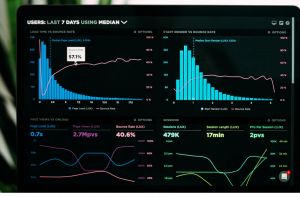Swedish Residence Permit Application
IIf you are going to work for longer than three months starting up and running your own business, or if you are becoming a part-owner of a company, you must have a residence permit. The residence permit must already have been granted before you travel to Sweden. You can apply online from your home country or any other country outside Sweden where you live.
Residence permit requirements
To apply for a residence permit to start up your own business, you must:
- have a valid passport (if your passport is about to expire, you should extend it because you cannot get a permit for longer than your passport if valid)
- show that you have considerable experience in the industry and previous experience of running your own business
- show you have relevant knowledge in Swedish and/or English
- prove that you are the person who is running the company, has executive responsibility and owns at least 50 per cent of the company
- your company's services or goods must be produced and/or sold in Sweden
- show that you have enough money of your own to provide for yourself and any family members for the first two years (the equivalent of SEK 200,000 for you, SEK 100,000 for your accompanying wife/husband and SEK 50,000 for each accompanying child)
- present plausible supporting documentation for your budget
- show that you have created customer contacts and/or a network in Sweden
- show that after the trial period of two years, your company’s finances are in balance and that you can support yourself and any family members (the stipulated amounts are calculated on the basis of the Swedish standard for income support plus housing costs).
- in most cases you must pay a fee (application fees for residence permits).
The Swedish Migration Agency will do a financial assessment of your business plans. To be registered as living in Sweden, you must have a permit that is valid for at least one year and you must be planning to live in Sweden for at least one year. Self-employed persons who are going to work for less than three months in Sweden do not need a residence permit. The citizens of some countries must have a visa even for work lasting less than three months.
Requirements for using the e-service
In order to use the e-service, you need:
- copies of the pages in your passport that show your personal data, photo, signature, passport number, issuing country, validity period and if you have permissin to live in countries other than your home country:
- bank certificates showing that you have sufficient funds to support you and your family for the first two years (the equivalent of SEK 200,000 for you, SEK 100,000 for your accompanying spouse and SEK 50,000 for each accompanying child)
- bank certificates showing that you have enough money to buy the company and for the costs and investments you have reckoned on in order to run your business
- a purchase contract if you have purchased or are intending to buy the company or business
- a trading company agreement or share register
- a document showing that you have paid the purchase price, or your share of the purchase price, if you have purchased the company or business
- contracts with customers or suppliers and premises
- the two most recent annual accounts or financial statements (if the company has been in operation)
- a balance sheet and profit and loss statement for the current financial year up to the previous month
- a course certificate or other proof that you know Swedish and/or English qualification certificates from your studies
- employer’s certificates from previous employers
- a registration certificate for companies that you have had or have outside Sweden.
The documents should be translated into Swedish or English by an authorised translator. You must always submit a copy of the original documents.
To find more help: https://www.migrationsverket.se/English/Private-individuals/Working-in-Sweden/Self-employment.html
Our company only takes international applicants as it really takes a lot to relocate someone with a salary work permit. We have given out loans located flats and been betrayed by applicants meanwhile customers see us free sourcing. We get no fee from the customer so our margins are low and customers do not pay timely. So, this is how it works now. Two people have spoiled it all with our company and for applicants. If you want to apply as a salaried person, please do it with competitors. As I have been doing Sweden for 20 years now, I know the costs you will have to endure: that means you will have to live a frugal life with a tiny budget. We have had enough now with some customers and will not work with some in Sweden.
To live in Sweden as salaried person, the salaries now can cover you to live but just ain dwelling. The apartments to rent in Sweden are expensive. It can be say for a room some 4500.00 SEK 45 minutes outside Gothenburg by bus. A Flat in THN is say 8000-9000. 45 Mins by train to Gothenburg. So can be 45-50 Sqm. A studio in Gothenburg central is 9500-13000SEK. All our monthly payments. This can be 18 to 35 sqm in size. If you have family and have kids, it will unfortunately not work. The wives never get work for years too. So we prefer people with no families.
Life looks good in Sweden, but only if you are a freelancer with high rates. Our consultant terms are long term so with good skills set work is endless. We will do a business template for Sweden so your application can be made. We will also create a business plan. You need to show in your bank account you have the necessary funds. If you are successful on relocation, we will pay you quickly and can guide you on all the process.The rates per hour as consultant are around 450.00- 525.00 SEK per hour. We can guide you on taxes and accounting with our partners. Long term is in five years so from that point you will get your full resident permit.
Will 2022 be the year Lidar takes off?
Will the year 2022 be the year of Lidar's take off, with the emergence of applications as varied as they were and unsuspected applications outside of the autonomous car? The year 2021 marks a turning point with the listing of a dozen or so Lidar companies, all American and Chinese. They now have the means to invest in making products more efficient and more accessible.
Lidar (light imaging and detection and ranging) is a sensor that gives machines 3D perception of their environment. By scanning its environment with a laser beam, it detects objects and people in the vicinity and allows to evaluate how far away they are. It is considered a key instrument for driver assistance systems and autonomous cars. "Compared to other detection devices such as cameras, radars and infrared sensors, Lidar offers the advantage of giving a 360-degree perception of the environment over a distance of several hundred meters, with an important notion of volume for the detection of trucks, for example," estimates Raul Bravo co-founder and CEO of Outsight, a French nugget specializing in Lidar data pre-processing software.
Although Lidar may seem like a revolutionary, state-of-the-art creation, it is a long-standing technology. However, it is a 45 year old technology that was originally developed by NASA and the U.S. Army to track lunar and satellite distances. The first commercial Lidar was used in 1995 in a United States Geological Survey project to map vegetation growth on Assateague Island.
Today, automakers see the technology as the next big step in road safety for autonomous cars.
SAP: when the skills gap slows down projects
Today, it is a fact that SAP skills are in short supply. As a matter of fact, quarter of users believes that the long-rumoured shortage is holding back projects.
IT teams don't have enough skills to fully meet the expectations of the business functions of companies that use SAP business systems.
That's the view of ASUG, the U.S. SAP user club. The shortage is such that it "is creating a major disruption in many of our member companies," said Geoff Scott, CEO of the collective, as noted by The Register.
Integration, support, upgrades... 26% of the organizations concerned consider the lack of SAP skills as a major obstacle to the successful deployment of projects.
This is particularly the case when it comes to migrating to the SAP S/4HANA integrated management suite, running on the in-memory HANA base, cloud or on-premise.
S/4HANA in production
31% of the 600 organizations surveyed have already deployed S/4HANA in production, 42% are planning to do so. However, for 49% of the organizations concerned, the lack of skills about the software platform is problematic, including external partners, whether they are system integrators or independent consultants.
Of the companies that report integration difficulties, 28% point to the spread of data errors, 17% to incompatibilities between SAP systems and third-party applications. Another 17% believe they are no longer able to keep up with the pace of technological change.
In France, according to a survey by the French-speaking SAP users' club (USF), this time 56% of the 163 companies and administrations questioned last year judged the German group's strategy for SAP S/4HANA positively. However, a third of the respondents still have reservations about the adaptability of the offering to market developments.
On the other hand, the maintenance extension of S/4HANA, until 2040, and Business Suite 7, including the ERP Central Component (ECC), until 2030, is appreciated. Above all, the level of expertise of SAP consultants on technical solutions receives 80% positive opinions, even if 69% of respondents consider the daily cost of these same consultants "unjustified"...
Source: www.silicon.fr







